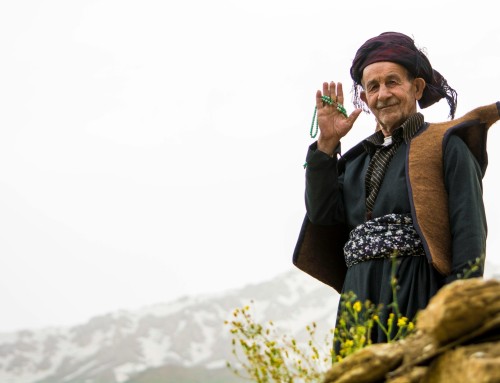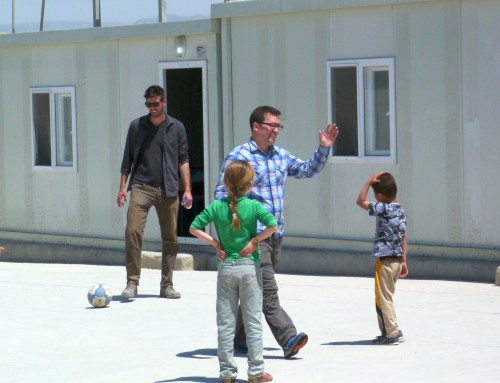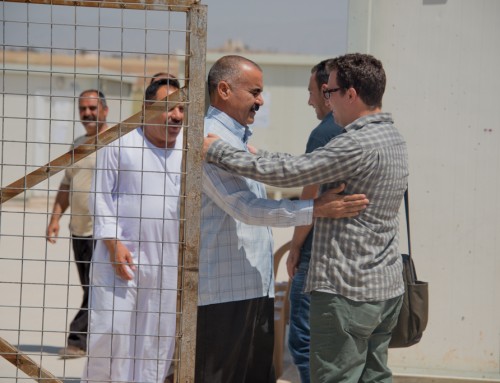“Can I come over and just watch how you live? I’d like to know how you guys live.” said Lydia. At the time, we thought it was a weird request from our student, but sure, why not? So she came over and spent at least a good six hours sitting at our big kitchen table just hanging out, talking, watching us cook, grade papers, lesson plan, and whatever else it was that we happened to be doing. We weren’t sure if she was ever going to leave, but we enjoyed how comfortable she felt just watching us like we were animals at the zoo.
We now realize that she wanted to observe us partly because we were Americans and she was curious about our culture, but another part of it was that we were a group of single women in our 20’s and 30’s living together in a foreign country and that is counter-cultural in a place like Kurdistan.
Years later we met up again. We talked of that experience and we had a good laugh about it, but she also said that she is still curious about people who are different. Lydia graduates soon and would like to get her Master’s in the US in Social Work and Education. Then she would like to come back to Kurdistan, get a job in the Ministry of Education to improve the national curriculum and “obliterate memorization from the education system.” (She means the memorization of long texts and other practices that “make people robots, and don’t teach them how to think.”) She would also like to start a school that would provide scholarships for gifted students from poor families to be able to receive a good education.
“I am a result of your investment. Thank you for taking the time to care about a group of kids in Iraq.”
As we learned more about her hopes and dreams for the future, we suggested she get started by serving refugees who don’t have any access to education. So Lydia wrote a scripted lesson plan about reading a Kurdish version of “The Giving Tree” by Shel Silverstein. When we went out to the refugee community we didn’t know what to expect and knew it would be somewhat chaotic, but she rocked it! She had amazing classroom management, patience, engaging presence, and consistency. And when we got finished, she said, “Please tell me what I can do to improve.”
We can how she is applying what she learned at the School of the Medes and her experiences in college and how she’s making those connections to real life situations. She has told us that she realizes she didn’t appreciate what her teachers were trying to instill in her and she regrets taking them for granted. She also told us that if she could get her Master’s in the US, she’d like to tell the churches and people who have supported the schools financially, “I am a result of your investment. Thank you for taking the time to care about a group of kids in Iraq.”
So thank you for your giving and prayers over the years. The full return on this investment is still a ways off, but even now we see bits and pieces of it.
Join us in caring for kids in Iraq. Give to help get teachers to Iraq.




